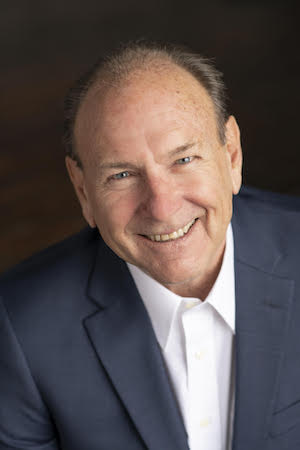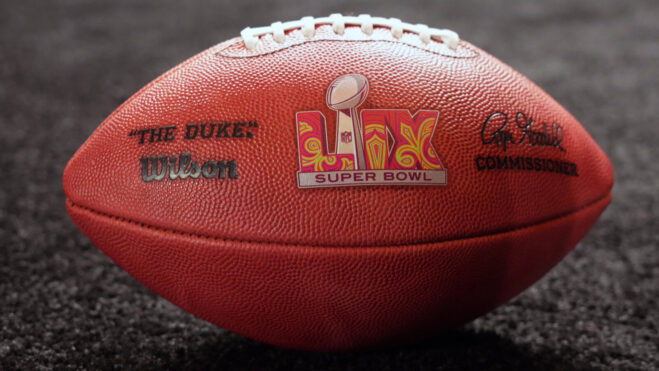Schuetz: Lotteries Were Not Purpose-Built To Regulate Other Forms Of Gaming
The Nevada regulatory model was developed at a particular historical time to handle a particular historical reality. But one size does not fit all.
6 min

I had the wonderful opportunity to study in detail the early evolution of Nevada’s efforts to regulate casino gaming. I worked on the project in the mid to late 1970s, and one advantage of this time was that many of the real pioneers in gaming regulation were still around and able to share their experiences and observations.
What made the Nevada case so interesting was that it was the first effort to regulate gaming in the United States in the modern era and, as such, became the precursor model to much of what followed the spread of gaming throughout the United States.
Nevada legalized casino gaming in 1931 and made a bit of an effort to regulate it in 1945 when the Nevada Tax Commission was given the ability to tax it at a whopping 1% of gaming revenues. In essence, the Nevada Tax Commission became the first regulatory agency, and its job with respect to gaming was mainly to collect the tax. This tax was raised to 2% in 1947.
Having the right tool for the job
Over the years, the Nevada gaming regulatory model evolved to possess the following five basic characteristics:
- The owners, operators, managers, vendors, and sources of finance should be free from inappropriate past or present associations or activities and operate with a high level of character, honesty, and integrity.
- The games offered should be fair and honest.
- The operations should demonstrate strong operational and financial controls.
- All fees, taxes, and related payments should be appropriately accounted for and paid.
- Appropriate controls should be in place to protect the vulnerable.
It is important to understand that these five areas of concentration did not appear overnight; they evolved over time due to the circumstances on the ground.

For instance, in the 1940s, a gentleman named Bugsy Siegel arrived in Las Vegas to build a casino on what is now known as the Las Vegas Strip. Prior to involving himself in building a casino in Las Vegas, Mr. Siegel was known to have been a rum runner, as they say, during Prohibition. He also gained notoriety as a founder of Murder, Inc. He was what can accurately be referred to as a mobster.
Mr. Siegel ran into the unfortunate circumstance of being shot in the head twice with a high-caliber rifle while in a home in Beverly Hills, California, in 1947. This was one of the early indicators that Nevada casinos were attracting an unsavory bunch.
For the record, there is an element of logic that mobsters were taking an interest in running casinos in Nevada. First of all, they were quite good at running casinos, for they had been doing it in places like New York, Chicago, Cleveland, Miami, and other locations in the United States for many years. Nevada seemed like a very cool place for them to relocate, for gaming was legal. No more paying bribes and protection money to the local police, courts, and politicians.
The bad news was that folks who were generally understood to be mobbed up were becoming identified as being present within the Nevada gaming experience, and this was bringing incredible heat on Nevada by the feds. FBI Director J. Edgar Hoover wanted to close the casinos in the state, and organized crime hearings at the nation’s capital relating to Nevada were becoming a reality. Nevada had to do something to protect its casino industry.
What they did was form an additional layer of regulation with the establishment of the Nevada Gaming Control Board (within the Nevada Tax Commission) in 1955 and then established the Nevada Gaming Commission in 1959 to take over the oversight role of the Board from the Tax Commission.
For obvious reasons, these regulators had to give the immediate impression of dealing with the mob issue, and one notes from the above-listed items that the first area of regulation addressed the character, honesty, and integrity of the participants.
The next three characteristics that shaped the Nevada model addressed the difficulty of ensuring the integrity of financial flows in a business that was basically all cash, eliminating tax evasion (skimming), and safeguarding customers from being taken advantage of with fixed games. These had all managed to become issues within the Nevada gaming experience.
The last of the five points, protecting the vulnerable, was a trailing topic of importance, and it was addressed many years later.
The point is that the Nevada regulatory model was developed at a particular historical time to handle a particular historical reality. In other words, it met the definition of purpose-built and adjusted to a changing reality with the passage of time.
One size does not fit all
In the last five years, there has been a robust expansion of gaming in the United States. This has primarily been due to the introduction of games that can be delivered and consumed over the internet, which has introduced a whole new array of regulatory challenges. So, too, however, there have been expansions of casinos in states and the incorporation of different products (think historical horse racing). Within the jurisdictions, decisions needed to be made as to how the oversight of these new verticals was to be addressed.
Based on concerns such as speed to market, the hesitancy of politicians to create new government departments, and the lack of understanding of the complexity of developing a viable and effective regulatory entity for sports wagering, state governments have tended to shuffle off the new gaming product into an existing department within the government.
With the new gaming vertical of sports betting, a number of states have tried to integrate it with the jurisdiction’s lottery organization. This is generally a bad idea.
There are three basic models of lotteries overseeing sports betting. One is a monopoly model, in which the lottery simply offers the sports betting platform. Another is a hybrid model, in which the lottery can compete with other operators in the sports betting space within the jurisdiction. The third is where the lottery oversees some number of firms offering sports wagering.
Regarding the monopoly model, it does not take a skilled economist to understand that monopolies, even with good-natured efforts to oversee them, are seldom a good idea. They tend to price higher, offer poor service levels, and are slow to innovate. That is, these monopolies tend to act like monopolies. And these results are most certainly exacerbated when the entity running the monopoly is a government. A monopoly should seldom be the solution, except in rare conditions where huge scale effects generate cost savings throughout increasing volume levels of the activity. This is not the case in sports wagering.
The hybrid model should also be avoided, for states generally should not work to compete with private enterprises.
This leaves us with the lottery as a regulator.
The purpose and the task
Lotteries are generally designed to benefit some group(s), often education and/or seniors. These decisions are often intertwined with the process of making the lottery legal through an election. One finds the population of the jurisdiction to be more receptive to voting in favor of a lottery when the cause is honorable and affects a wide swath of the voting population.
Once the lottery is empowered to offer its products, it is essentially operating a business — a business whose success is important to the jurisdiction. In essence, the jurisdiction is best served if the lottery behaves like a business and, within its charter, maximizes its contribution to the state.
A traditional casino regulator does not work to maximize the industry’s profits but rather to ensure that the industry operates within the confines of the law and established regulations. Mastering the profit equation within the legal and regulatory framework is the challenge of the industrial participants, not the regulator.
Traditional casino regulation aims to prevent bad things from happening. With the lottery, the goal is to make good things happen. These are two different mindsets and require different skills. Lotteries need strong marketers, whereas with regular gaming regulators — not so much.
A last important point regarding the lottery is that it is potentially conflicted with other gaming products. As gambling expands by leaps and bounds across the United States, competition will heat up for the gaming dollar, and an agency mandated to generate those dollars cannot regulate another competing for those same dollars. This posits a clear conflict, and that is not right. It simply becomes a case of working to serve too many masters, and the lottery should avoid this and focus on what it was established to accomplish.
Previously from Richard Schuetz
The Casino Industry Needs To Get Its Own, On-Shore, House In Order
Gambling Regulation And Boeing Chart The Same Turbulent Path
Sports Integrity Efforts And Stopping Dumb Critters
Richard Schuetz entered the gaming industry working nights as a blackjack and dice dealer while attending college and has since served in many capacities within the industry, including operations, finance, and marketing. He has held senior executive positions up to and including CEO in jurisdictions across the United States, including the gaming markets of Las Vegas, Atlantic City, Reno/Tahoe, Laughlin, Minnesota, Mississippi, and Louisiana. In addition, he has consulted and taught around the globe and served as a member of the California Gambling Control Commission and Executive Director of the Bermuda Casino Gaming Commission. He also publishes extensively on gaming, gaming regulation, diversity, and gaming history.






